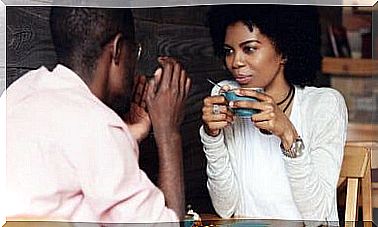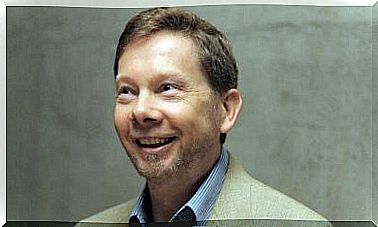Counseling Skills Needed In Psychotherapy

Counseling skills are important for therapists. For this reason, psychologists and psychotherapists should use them during all therapy sessions. They learn these skills in the same way as other psychological methods.
The concept of the therapeutic relationship comes from the psychodynamic model presented by Bordin several decades ago. It is an ingredient of important change in any therapy model. It must therefore be used throughout treatment if it is to be truly effective.
There are three different components to a therapy relationship:
- The relationship between the patient and the therapist, defined by emotional tone and collaboration.
- Consensus on the objectives to be achieved.
- Consensus on the tasks required to achieve the objectives to be achieved.
Some scholars, such as Carl Rogers and his humanistic psychology, suggest that all therapies should have the following ingredients:
- Authenticity and consistency.
- Absolute acceptance and empathy for the patient.
Rogers, in fact, believed that these elements were necessary for any change to take place. Other skills that take advantage of building a therapeutic relationship are also important in addition to this important alliance.
One of the most important counseling skills of a therapist is the ability to establish a good connection and relationship with the patient.
Important counseling skills for therapists

In order to study the variables to be considered in the use of counseling skills, Sloane and other researchers conducted a study in 1975 that focused on the importance that the patient attaches to these variables and that they consider the reason for their success mandatory:
- Therapist personality.
- Therapist’s ability to listen.
- The therapist’s way of gradually encouraging the patient to do things that he or she doesn’t think he or she can do himself or herself.
- The therapist’s ability to speak in a way that the patient understands.
- The help provided by the therapist to the patient so that he understands himself.
Other skills
Other authors such as Ackerman SJ and Hilsenroth MJ (2003) evaluated publications on this topic and found that therapists most likely to promote a healthy alliance are:
- Flexibility. The way in which the Therapist accepts and modifies his or her way of communicating to suit that situation and the patient he or she is facing.
- Experience. How the Therapist Demonstrates His Clinical Experience.
- Honesty. Does the patient believe the therapist is sincere?
- Respect. Does the Therapist respect the patient’s values and how does he or she express and communicate them in general?
- Loyalty. The patient can trust the therapist.
- Self-confidence. The patient feels that the Therapist knows what he is doing.
- The therapist shows interest in the patient and his problems.
- Attention. The professional is aware of what is happening in the therapy session. This means verbal and non-verbal communication of the patient.
- Proximity. The patient feels close to the therapist.
- Heat. The therapist is nice and warm hearted.
- Transparency. The therapist understands and accepts other perspectives.
Thus, we can conclude at this time that there is sufficient information about the importance of the characteristics of the therapist for the results of a particular treatment. Some studies show that the effectiveness of treatment and the reduction of sessions are significantly better when these methods are introduced. When not in use, the opposite happens.
What happens during a therapy session?

Some studies reveal that the first session, i.e., when the patient and the Therapist first meet, is defining among most patients. Therapists who succeed in getting the patient hooked for ongoing treatment show better verbal care and diagnostic skills than therapists who fail to do so.
If non-treatment factors are isolated, such as the patient’s financial capacity or the travel time used to attend the session, most experts agree on two fundamental reasons that explain the discontinuation of therapy:
- The personal characteristics of the therapist and lack of interest in the proposed intervention approach.
- The patient believes he has developed enough to decide not to proceed.
Despite discontinuation, studies show that a therapist’s verbal skills affect the ultimate success of treatment in that the number of discontinuations is significantly lower for therapists who have them.
Therapeutic counseling skills: a summary
Thus, in light of research, we mentioned the importance of therapists learning useful therapeutic skills. It is not enough that they only know their field thoroughly, but they also need to be able to put them into practice, present them in the right way and adapt them from one patient to another. Training is a lot of help in this precision task.









